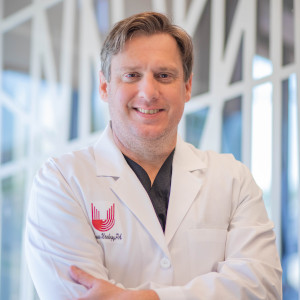Penile Curvature / Peyronie’s Overview
Peyronie’s disease is an abnormal, and sometimes painful, curvature of the penis caused by hardened scar tissue in the penis.
The scar tissue prevents straightening of the penis, making the curvature most obvious during an erection. Normally, when the penis hardens and stretches, the skin and connective tissue of the penis remain loose and elastic to accommodate the changes. But the hardened scar tissue makes a normal straightening of the penis virtually impossible. The curvature may be so severe that it prevents penetration during intercourse.
Studies show that Peyronie’s disease can be found in up to 9 percent of men between the ages of 40 and 70. The incidence may be higher than that due to embarrassment and hesitancy to report the condition to doctors.
Peyronie’s disease is also considered a connective tissue disorder that can lead to penile curvature, erectile dysfunction, and difficulty with sexual activity. While it may feel unsettling or frustrating, it is treatable. Arkansas Urology provides expert medical care using a combination of non-surgical and surgical treatment options. Our goal is to reduce penile deformity, preserve sexual function, and improve quality of life.
We offer Peyronie’s treatment Arkansas patients can trust—using oral medications, vacuum erection devices, penile traction therapy, and surgery when needed. Early evaluation often leads to significantly improved outcomes.


